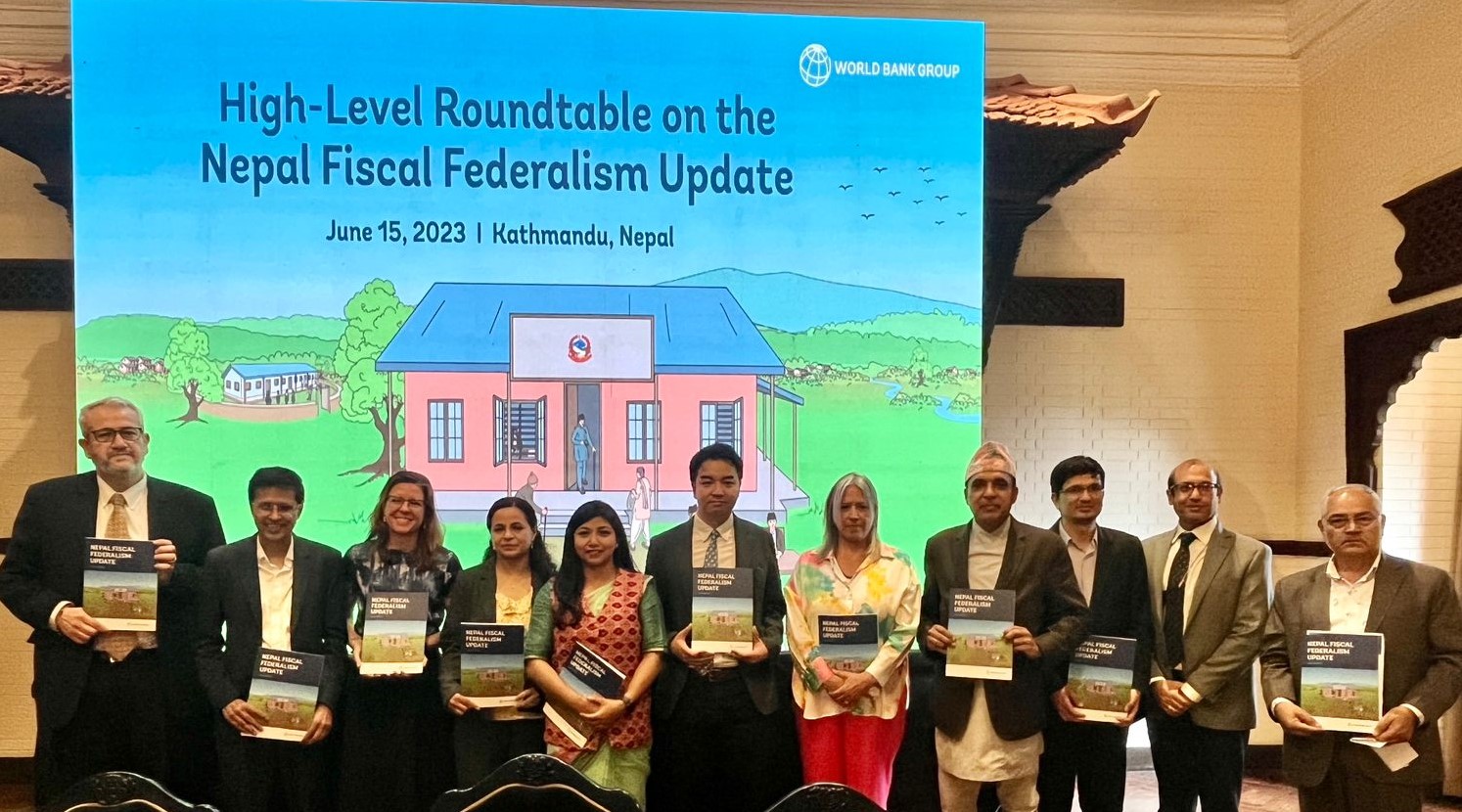Kathmandu: Nepal has made significant progress on fiscal federalism, but more needs to be done to strengthen the regulatory framework, institutional setup, human resource capacity, and public financial management (PFM) systems at the provincial and local levels, says the World Bank in its first annual Nepal Fiscal Federalism Update launched today.
“The report highlights the need to develop a fiscal federalism roadmap that encompasses a clear set of actions, sequence, timeline, and responsible actors to improve fiscal federalism outcomes in Nepal,” said Balananda Paudel, Chairperson of the National Natural Resource and Fiscal Commission.
While provincial and local governments received nearly 36.7 percent of the federal money through intergovernmental fiscal transfers, -which amounted to 64.8 percent of their revenue in FY21, in the past five years the largest and proportionally growing fund transfers to subnational governments have been through conditional grants.
These are heavily earmarked, thus the share of conditional grants needs to be gradually lowered and other grants including equalization grants be increased following the expenditure capacity of the provincial and local government increases, according to the report.
The Nepal Fiscal Federalism Update identifies key reforms to help Nepal improve fiscal federalism outcomes.
It recommends developing a fiscal federalism roadmap to guide and monitor the reforms in this area, reinforcing the Inter-Governmental Fiscal Transfer system, and establishing a consolidated PFM performance database at the subnational level.
It also recommends amending the legal framework to clarify the concurrent and shared responsibilities among the three tiers of government, strengthening the capacity of provincial and local government staff to carry out PFM-related functions, and reinforcing systems to improve the budget credibility and delivery of services by subnational governments.
